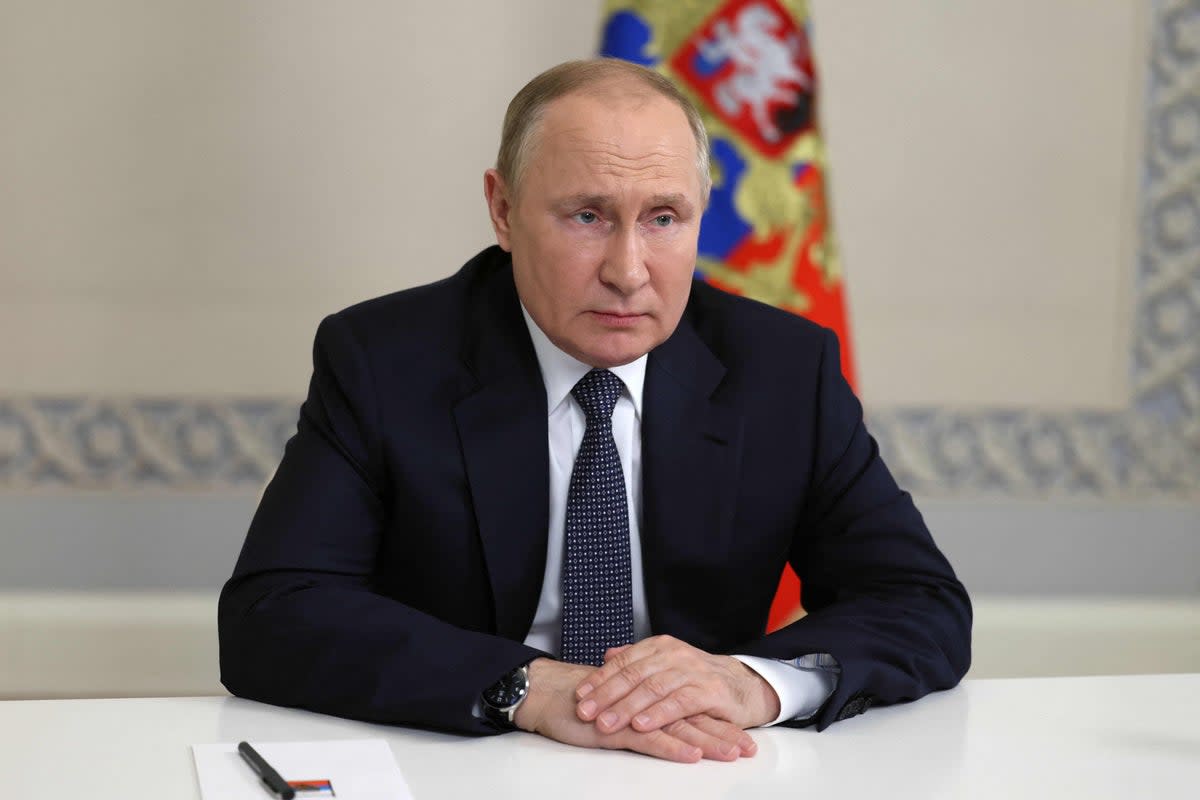Putin making ‘preposterous’ claims about Russia’s past to justify Ukraine war

Vladimir Putin is making “perverse and preposterous” claims about Russia’s past to justify his invasion of Ukraine, one of Britain’s most eminent historians has warned as he hit out over the “terrible damage” that distortions of the truth can inflict.
Sir David Cannadine said the Kremlin leader – who has claimed that Ukraine is not a country but part of Russia – was using the “deliberate manipulation and falsification” of Russian history to justify “very bad ends”.
He added that the Russian president’s actions highlighted the importance of rigorously researched and well written accounts to improve historical understanding and how “more than ever we need good history to drive out bad history”.
Sir David’s comments came as he and his fellow judges announced the winner of this year’s £50,000 Wolfson History Prize at a ceremony at the Wallace Collection in London attended by many of the country’s leading historians.
The award was given to Dr Clare Jackson for her book Devil-Land, which was described as “a masterpiece” by the judges.
It tells the story of England under siege from the continental superpowers France and Spain during the late Tudor and Stuart era and beat five other shortlisted contenders for the prestigious prize.
Sir David said the each of the books was an example of outstanding history but used his opening remarks to round on the dangers posed by “bad history” and the distortions of Vladimir Putin in particular.
“In the troubled times in which we live, it is tempting to say that there is almost too much history going on and a great deal of it is not good history,” he said.
“One example is the deliberate manipulation and falsification of the Russian past by Vladimir Putin in his perverse and preposterous attempts to justify his invasion of Ukraine.
“This is very bad history made up and invoked to justify very bad ends and it reminds us all too vividly and tragically that bad history can do terrible damage and harm.
“That is one of the many compelling reasons why we need good history” rigorously researched and written in an attractive and accessible way so that it forms part of wider public culture. More than ever we need good history to drive out bad history.”
Accepting her award, Dr Jackson echoed Sir David’s comments about the need for accurate history, saying that the subject had a “huge audience” and “was more important than ever”.
She added: “A lot of the people that I was writing were concerned about conspiracy theories, false news, myth, misinformation and it’s important that we continue to write well and make sure that everything is evidence based.”
Paying tribute to the winner, Paul Ramsbottom, chief executive of the Wolfson Foundation, said: “Since 1972, the Wolfson History Prize has recognised outstanding history writing that is rooted in excellent research, but which also sparkles and is eminently readable. Devil-Land is no exception. Clare Jackson’s engrossing book demonstrates how history can bring fresh insights to familiar events and shed new light on the narratives of our past.”
The other shortlisted authors for this year’s Wolfson History Prize, which is celebrating its 50th anniversary, included Professor Marc David Baer from the London School of Economics for The Ottomans, an history of the Ottoman empire, and the London historian Alex von Tunzelmann for her book Fallen Idols.
It tells the stories of statues around the world that have been removed or toppled, including that of Edward Colston in Bristol during the Black Lives Matter protests of 2020.
Ms von Tunzelmann suggested in the Evening Standard earlier this year that the City Hall commission studying the future of monuments in the capital should consider the idea of a statue park, modelled on the one in Budapest.
She said it could be used to display contentious or even “ugly” memorials that the public wanted shifted from their existing locations and become a tourist attraction.
Others present at the award ceremony included the Wolfson History Prize’s first winner Sir Keith Thomas as well as the TV historians Lucy Worsley and Dr Janina Ramirez and previously shortlisted authors including Prashant Kidambi, whose book Cricket Country told the story of the first “All India” team to tour Great Britain and Ireland in 1911.

 Yahoo Lifestyle
Yahoo Lifestyle 
